
Mickey Rooney was an American actor. In a career spanning nearly nine decades, he appeared in more than 300 films and was among the last surviving stars of the silent-film era. He was the top box-office attraction from 1939 to 1941, and one of the best-paid actors of that era. At the height of a career ultimately marked by declines and comebacks, Rooney performed the role of Andy Hardy in a series of 16 films in the 1930s and 1940s that epitomized the mainstream United States self-image.

Lewis Shepard Stone was an American film actor. He spent 29 years as a contract player at Metro-Goldwyn-Mayer and was best known for his portrayal of Judge James Hardy in the studio's popular Andy Hardy film series. He was nominated for the Academy Award for Best Actor in 1929 for his performance as Russian Count Pahlen in The Patriot. Stone was also cast in seven films with Greta Garbo, including in the role of Doctor Otternschlag in the 1932 drama Grand Hotel.

Andrew "Andy" Hardy is a fictional character best known for the Metro-Goldwyn-Mayer series of 16 films in which he was played by Mickey Rooney. The main film series was released from 1937 to 1946, with a final film made in 1958 in an unsuccessful attempt to revive the series. Hardy and other characters initially appeared in the 1928 play Skidding by Aurania Rouverol. Early films in the series were about the Hardy family as a whole, but later entries focused on the character of Andy Hardy. Rooney was the only member of the ensemble to appear in all 16 films. The Hardy films, which were enormously popular in their heyday, were sentimental comedies, celebrating ordinary American life.
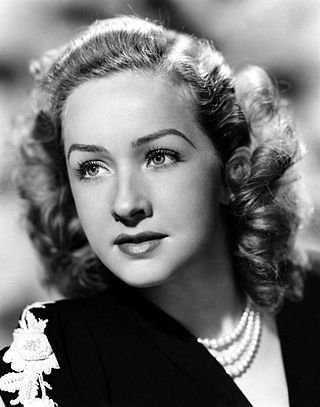
Bonita Gloria Granville Wrather was an American actress and producer.

Hugh Herbert was an American motion picture comedian. He began his career in vaudeville and wrote more than 150 plays and sketches.

Sara Haden was an American actress of the 1930s through the 1950s and in television into the mid-1960s. She may be best remembered for appearing as Aunt Milly Forrest in 14 of the 16 entries in the Metro-Goldwyn-Mayer Andy Hardy film series.

Andy Hardy Meets Debutante is a 1940 American romantic comedy film directed by George B. Seitz. The film stars Lewis Stone, Mickey Rooney, Cecilia Parker, Fay Holden, and Judy Garland. It is the ninth of the Andy Hardy full-length film series.

Agnes Christine Johnston was an American screenwriter who wrote for more than 80 films between 1915 and 1948.

Andy Hardy's Private Secretary is a 1941 American comedy film directed by George B. Seitz and starring Lewis Stone, Mickey Rooney, Kathryn Grayson, Ann Rutherford and Fay Holden. It was the tenth of the 16-film Andy Hardy series. Marian Hardy does not appear in this film.

A Family Affair is a 1937 American comedy film directed by George B. Seitz and based on the 1928 play Skidding by Aurania Rouverol. It was the first of 16 films now known as the Andy Hardy series, although Andy Hardy did not become the main character in the series until several more installments had been made. The film stars Lionel Barrymore, Cecilia Parker, Eric Linden, Mickey Rooney and Charley Grapewin.
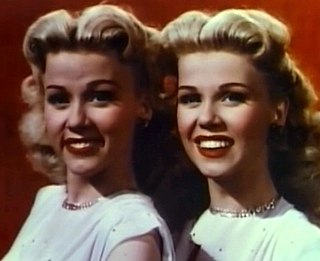
Lee and Lyn Wilde, sometimes billed as The Wilde Twins, were twin sisters, who appeared in films of the early to mid-1940s.
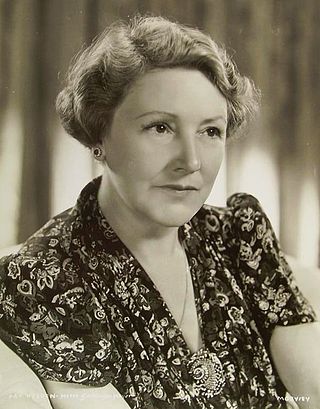
Dorothy Fay Hammerton, known professionally as Fay Holden, was a British-born, American-based actress. She was known as Gaby Fay early in her career.

Love Laughs at Andy Hardy is a 1946 American comedy film directed by Willis Goldbeck and starring Mickey Rooney, Lewis Stone and Bonita Granville. It was produced by Metro-Goldwyn-Mayer. The film is also known under its American promotional title Uncle Andy Hardy. This was the fifteenth and penultimate film in the Andy Hardy series. The final installment, Andy Hardy Comes Home (1958), would be released 12 years later.
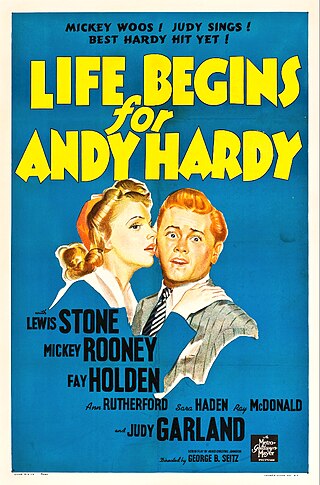
Life Begins for Andy Hardy is a 1941 American comedy film and the 11th installment of the 16 popular Andy Hardy movies. Directed by George B. Seitz, Life Begins for Andy Hardy was also the last Andy Hardy movie to feature Judy Garland.

Andy Hardy's Double Life is a 1942 comedy film directed by George B. Seitz. It was the thirteenth installment of MGM's enormously popular Andy Hardy film series starring Mickey Rooney as the title character.
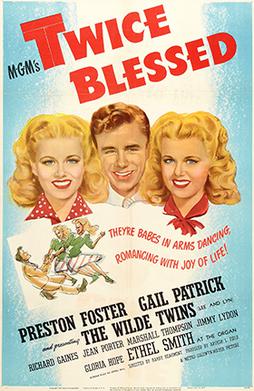
Twice Blessed is a 1945 American comedy film directed by Harry Beaumont and starring Preston Foster, Gail Patrick, and Lee and Lyn Wilde. It was an MGM vehicle for the Wilde twins, who were first introduced in Andy Hardy's Blonde Trouble (1944).

Judge Hardy's Children is a 1938 film in the Andy Hardy series. The plot involves the Hardys visiting Washington, DC, in this third entry in MGM's "Hardy Family" series.
Elmo Veron was an American film and television editor. He worked on nearly 50 different TV shows and films during his career. Which included some of Mickey Rooney's films from the early 1940s.

Campus Honeymoon is a 1948 American comedy film directed by Richard Sale, written by Jerome Gruskin and Richard Sale, and starring Lyn Wilde, Lee Wilde, Adele Mara, Richard Crane, Hal Hackett and Wilson Wood. It was released on February 1, 1948 by Republic Pictures.

Lester White was an American cinematographer.



















